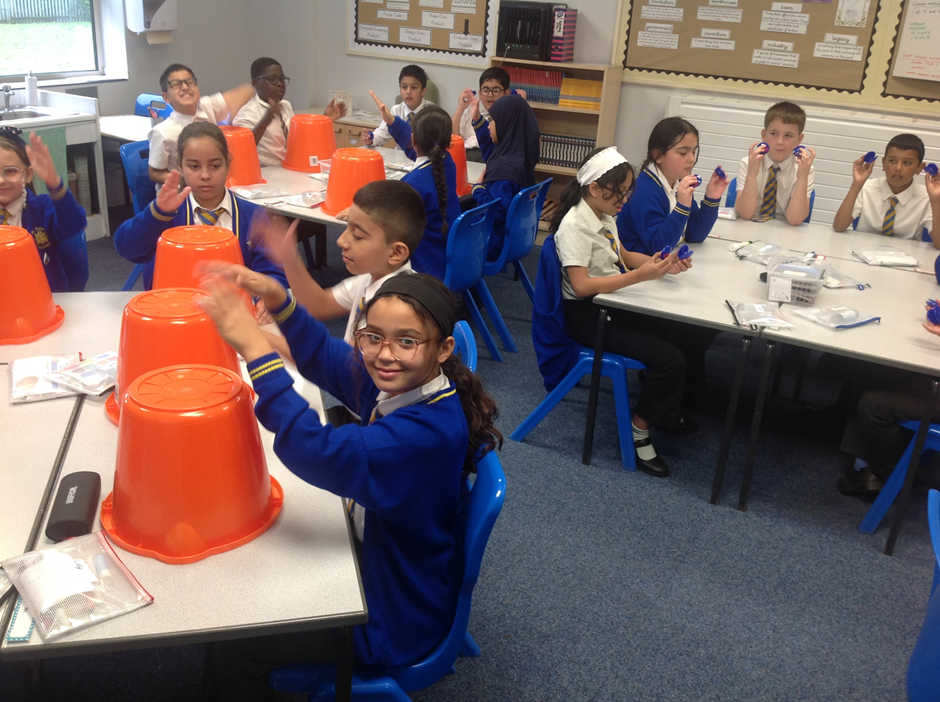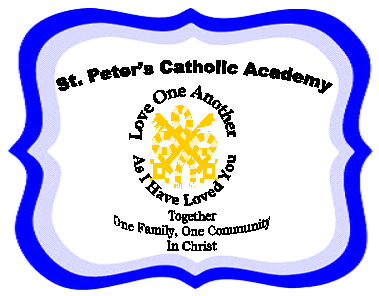Music
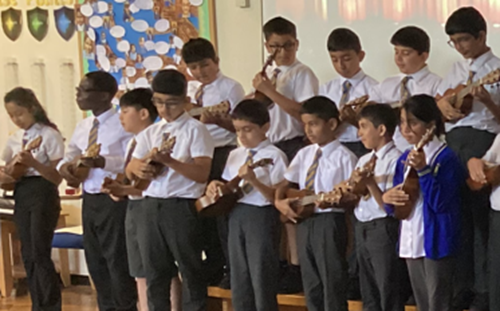
Welcome to music at St Peter's Catholic Academy. My name is Mrs Wallace and I am the music teacher at our school. When I was at school I loved music and I believe that every child at St Peter's has the potential to be a musician. I want every child that leaves St Peter's to have a love for music.
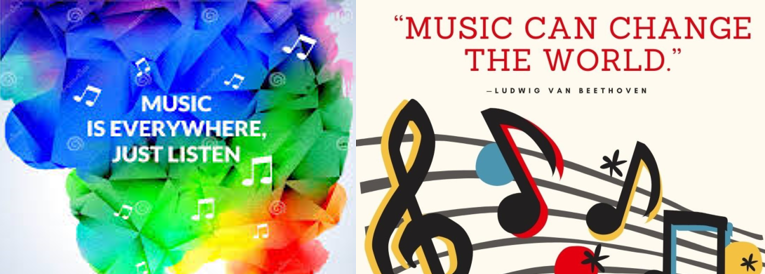
Intent
Music is a constant throughout our lives; it has the ability to connect us and allow us to communicate while overcoming all barriers. Music can motivate us, comfort us, inspire us and give us a space to reflect, it is a vehicle for expression and personal development. Music is representative of the cultures it comes from and so, through learning about different musical styles, children are given the chance to learn about and understand the world.
In addition to being a creative subject, music is highly academic and demands practice. Through carefully created opportunities to create, play, perform and listen to a variety of musical styles children should develop a sense of musical history, know that music provides an important contribution to people’s lives and develop their composition, performance and listening skills.
Music at St Peter’s Catholic Academy is a joyful experience and it is our intention that music is a skill children will keep for life. The high quality of music education children will engage with will inspire a love of music, their talent as musicians, their self-confidence, creativity, cultural capital and sense of achievement.
Implementation
Music lessons at St Peter’s inspire and engage all pupils to develop their talent as musicians and their love of music and this is supported by all teachers. Almost all lessons include practical learning opportunities.
Our musical aim is for all children to develop their understanding and skills in the three pillars of music; technical, constructive and expressive. Children build on their prior knowledge and develop their musicianship skills.
Our curriculum is rooted in the National Curriculum and aims to ensure that all children;
- Perform, listen to, review and evaluate music across a range of historical periods, genres, styles and traditions, including the works of the great composers and musicians
- Learn to sing and to use their voices, to improvise, create, and compose music on their own and with others, have the opportunity to learn a musical instrument, use technology appropriately and have the opportunity to progress to the next level of musical excellence.
- Understand and explore how music is created, produced and communicated, including through the inter-related dimensions: pitch, duration, dynamics, tempo, timbre, texture, structure and appropriate musical notations.
Impact
Our children should appreciate how the joy of music making can feed the soul of a school community, enriching each student while strengthening the shared bonds of support and trust.
Our school is full of music; as a Catholic school, listening to and singing music is an integral part of worship and spreading the message of the Gospel. There is a high level of instrumental teaching beyond the curriculum provision.
We know our children have progressed in music when:
- They can make connections between the music they have heard and their own life experiences and learning in other subjects.
- They are happy to perform in front of their peers.
- They can organise sounds for a purpose, in a structure, communicating ideas effectively.
Music events at St Peter's
Young Voices
On 14th January the Key Stage 2 members of the choir went to Birmingham to take part in the annual Young Voices concert. The children had a brilliant afternoon and evening and sang beautifully.
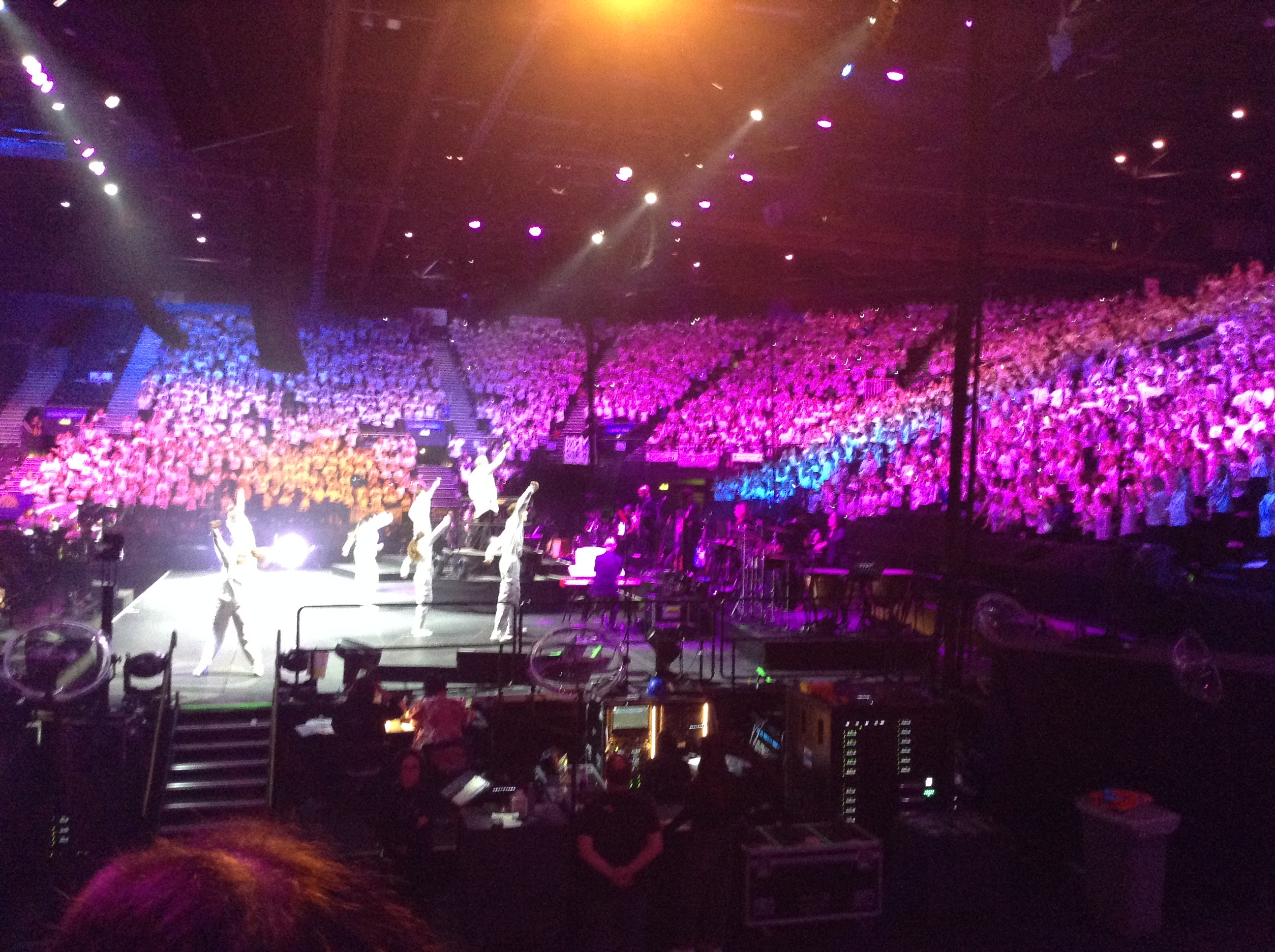
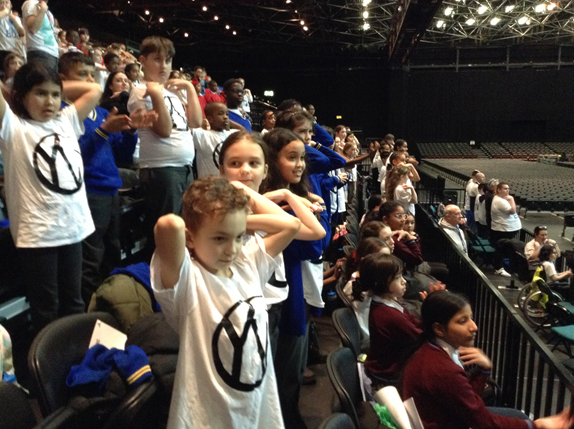
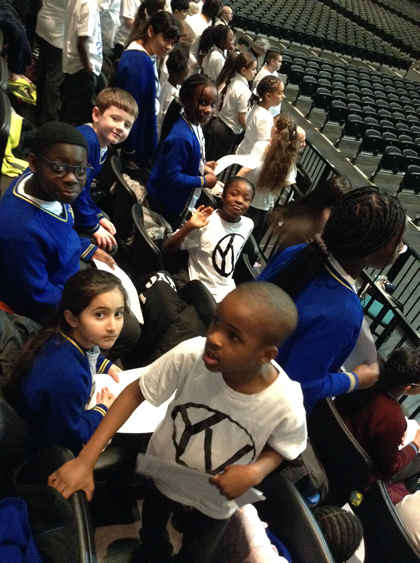
Singing in the Community
On Friday 13th December, the choir sang in the atrium of the Royal Stoke University Hospital. They also performed at Camoys Court Care Home on the last day of term. The choir sang beautifully in both concerts. Well done to you all.
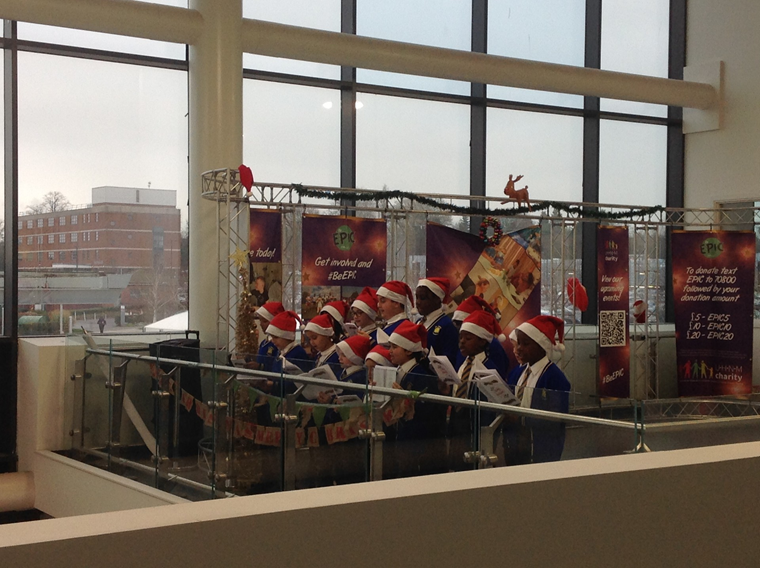
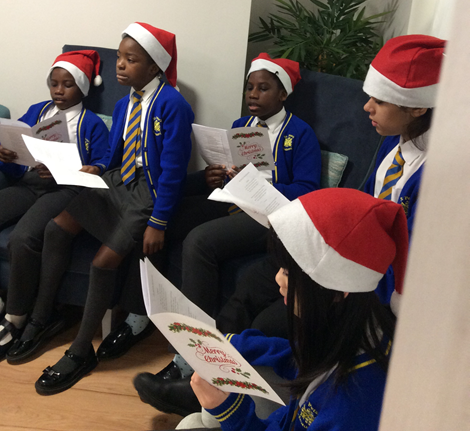
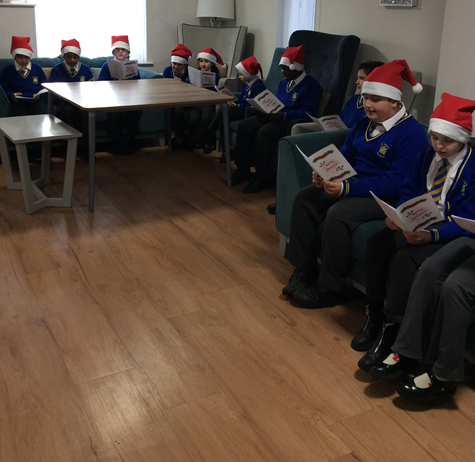
Music Share at Lichfield Cathedral
On 12th November, the children visited Lichfield Cathedral. They had been practising songs with a singing teacher and went to the cathedral to perform their songs with children from other schools. The children took part in Evensong and read bidding prayers. Well done Year 4

Black History Month
Each class celebrated Black History month by thinking about African music and musicians. In Year 5 and Year 6 we thought about the impact African drumming has on Western music including jazz and hip hop. We used our rhythm skills to play syncopated polyrhythms.
